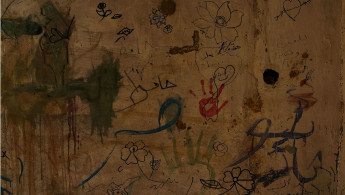Place of birth: Prison
Zina Yazji, a well-known Syrian journalist, could not control her tears during a 2012 interview with dissident Michel Kilo on Dubai TV. Kilo told Yazji about meeting a five-year-old boy who was born in a Military Investigations Branch prison in Damascus.
The boy lived his whole life in prison with his inmate mother, and a prison guard took Kilo to meet the two. Kilo discovered that the woman was a hostage, detained until her husband, a Muslim Brotherhood member, handed himself over to the regime.
Kilo tried to entertain the child by telling him a story about a bird on a tree. Yet the child did not know the meaning of "tree" or "bird". He was born in a prison and had never seen either.
Israel's jails are notorious in the region. But it is not only Israel that detains pregnant women. The mothers' children are taken hostage along with them. This is also a common trait of Bashar al-Assad's regime in Damascus, a practice he inherited from his father.
A few days ago, a very normal piece of news reached me from Syria. Dr Maria Bahjat Shabo was detained by the Political Security Branch in Damascus on her return from Beirut and was transferred to the General Intelligence Directorate. Nine days later she was released.
According to the news report, Maria was born in prison in 1988, to a woman who was a political prisoner. She spent the first 18 months of her life in jail. When she was set free, Maria's father raised her, until her mother was released from jail more than two years later.
There are many people like Maria who open their eyes each morning in Israeli and Syrian jails, and there is a certain bond that unites them. Maria had the will power and drive to overcome her painful first years to become a doctor. Other children born in prison possess a similar drive and determination; children such as Noor Ghanem who spent his first years of life in prison with his mother. Or Bara, whose mother endured a Caesarean section under armed guard, or Wael whose mother gave birth to him in her cell.
| According to the news piece, Maria was born in prison in 1988, to a woman who was a political prisoner. |
Reading these names, and the many others which have not been covered by the press, one cannot feel the same apathy that Ecuadorians might feel about a traffic accident in Guinea-Bissau.
The pain inflicted upon those Syrian and Palestinian women is soul-wrenching.
The story of the bird and the tree is intimately linked to Maria Shabo's repeated imprisonment, along with the suffering of Palestinian women whose children only experience the world through closed prison cell doors - their outlet to the world coming through brutal prison guards.
The late Sheikh Hani Fahs was correct when he said that there was no difference between the Syrian and Israeli regimes.
This is an edited translation from our Arabic edition.



